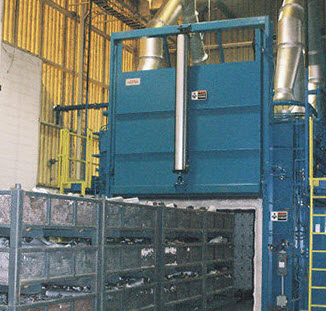Types of Industrial Furnace Spare Parts:
- Combustion components, including burners, flame rods, regulators, igniters and pressure switches
- Conveyors, chain, fixtures, and tooling
- Electrical components, including fuses, relays, switches and controllers
- Drives, motors and transmissions
- Fans, blowers and air kits
- Pumps, valves, nozzles and pipe fittings
- Replacement insulation and panels
HeatTek’s Parts Stocking Program:
Pre-arranged stocking programs can be established for different customers and systems.
- We will stock your critical parts in our facility.
- Parts usually ship within 24 hours of your request
Our spare parts team is ready to help you select the right part for your repair and get your furnace back in production. Contact Roger Winker to order replacement parts and components and for information on our stocking program. If you do not have an account with us, we accept Visa and Mastercard.
Commitment to Sustainability
Along with the world’s leading can makers, HeatTek understands and supports the importance of sustainable technology and net zero processes. Every detail is considered when engineering each of HeatTek’s Evolve Systems to ensure your sustainability goals are met or exceeded.
- Reduced gas usage through airflow and temperature optimization
- Minimized virgin water usage and chemical usage through RO technology
- Options for natural gas alternatives such as electric and infrared technology
- Recycled materials
- Consultations and audits for current system health and sustainability impact

